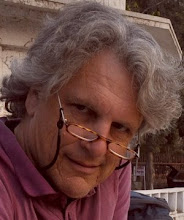An important premise which quickly emerged was that minimal guidelines would direct the sessions. The dominating intellectual curiosity of the players discouraged structure, as did their limited musical abilities. The desired expression was a representation of the diverse interests of the group members, to be revealed as Elvis matured.
Instrumental skills, or more precisely, the lack of instrumental skills, and the limited availability of instruments also helped define the musical outcome. With each session more instruments became available. Acoustic strings, woods and percussion, as well as electric and primitive programmable keyboards were added as time progressed. Players were encouraged not to focus on instruments of their expertise, but rather to experiment with unfamiliar instruments. Often when a leadership role was assumed for a piece, it was manifest as an attempt to use an instrument in an uniquely expressive way.
The locale of each Elvis session was also influential. The three different homes where the sessions took place imposed different instruments, acoustics and environmental properties. Although the evenings were originally conceived as musical soirees, the gradual introduction of tea, cookies, pharmaceuticals and social commentary enhanced our sense of communal purpose, real or imagined.

Membership in Elvis quickly became exclusive and hence the numbers and personalities were important in shaping the music. New band mambers came, some left and some stayed. For posterity we wanted to document each session, and part of the definition became "two or more of a specific group playing together." Four at any one time was a comfortable maximum.
In 2002 - Elvis' 20th anniversary - there are ten "official" members of the band and many others who have had the priviledge/misfortune of sitting in for a session or two. Four are original members having played with the band since its conception in 1982 and nine of the ten have been with the band for at least 10 years - a remarkable testimonial to human endurance!


